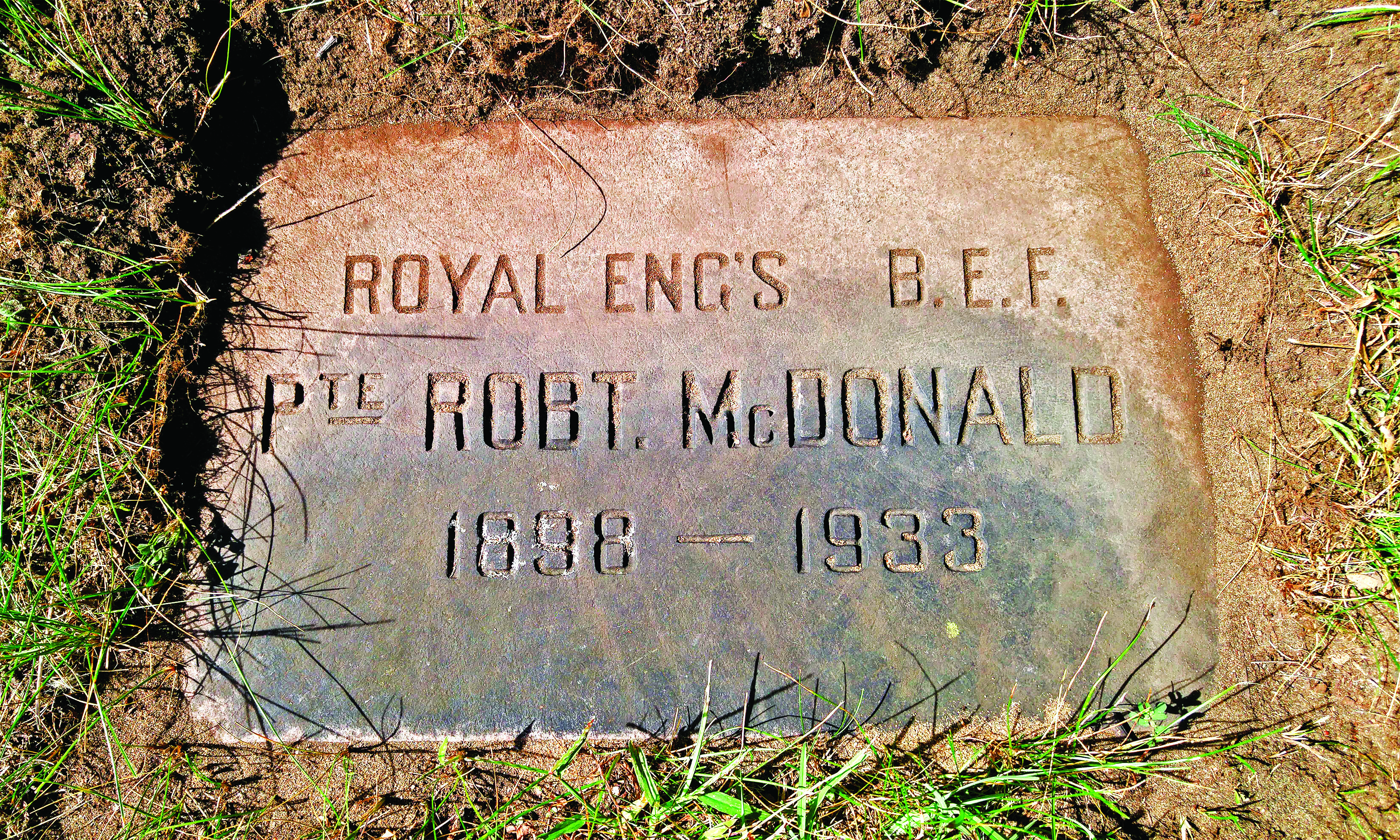Randy Evans & Gary Shrumm
The sad story of Robert McDonald says a lot about how returning veterans were treated after the First World War.
McDonald was born in April of 1888 and moved from England to Canada around the turn of the century.
His life turned full circle in 1914 when the war broke out during a visit to the old country. McDonald followed his loyalties and enlisted as a Private in the Royal Engineers.
Somehow, he managed to survive the artillery, the snipers and the diseases of the front and returned to Canada, where by 1921 he was living in Sarnia.
By then, however, he was only a shell of his pre-war self. An acquaintance reported:
“He went through four years of hellfire which no doubt wrecked his constitution and made it impossible for him to re-establish himself in civilian life. “
When the Great Depression came along McDonald lost his job. Already disabled by his wartime experiences, he became reliant on the civic Central Relief Agency for survival. His residence was a room at the single men’s hostel in the old Normandy Hotel, which was located at Ferry Dock Hill.
World War One veterans who returned suffering from psychological disabilities got little or no assistance from the government. Benefit claims were routinely met with skepticism and disbelief by Pension Boards.
In January of 1933 McDonald fell ill and he died in hospital on Feb. 5.
An organization called The Last Post was dedicated to ensuring vets received a respectful burial befitting their service. But in McDonald’s case, it dropped the ball. No one was there when he died and so it failed to make the required burial arrangements.
Instead, following an autopsy, the city had his remains interred at Lakeview Cemetery.
When The Observer reported on the burial, in a spot regarded as a “potter’s field“ for paupers, veterans were indignant at the disrespect shown a fellow military member.
The Last Post responded defensively by promising to reinter McDonald in a more suitable location with an appropriate headstone.
An investigation of the records has shown that three months later his body was dug back up and reburied beneath a flat, modest stone at Lakeview, albeit with an incorrect birth year.
Disabled, isolated, penniless and, essentially, forgotten at death, war veteran Robert McDonald deserved much better.


